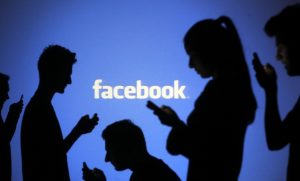 On Sunday, Facebook (NASDAQ:FB) activated its Safety Check feature for the first time in the United States in response to a mass shooting at a gay nightclub in Orlando, Florida. A gunman opened fire at the Pulse nightclub, killing at least 50 people in what is being called the worst mass shooting in U.S. history. The gunman, identified as Omar Mateen, a 29-year-old Florida resident and US citizen, was killed by police at the scene.
On Sunday, Facebook (NASDAQ:FB) activated its Safety Check feature for the first time in the United States in response to a mass shooting at a gay nightclub in Orlando, Florida. A gunman opened fire at the Pulse nightclub, killing at least 50 people in what is being called the worst mass shooting in U.S. history. The gunman, identified as Omar Mateen, a 29-year-old Florida resident and US citizen, was killed by police at the scene.
The mass shooting quickly became a top trending topic on Facebook and Twitter. Many users posted with the hashtag #PrayforOrlando. Facebook chief Mark Zuckerberg wrote in a post, “Waking up this morning, I was deeply saddened to hear about the shooting in Orlando. My thoughts and prayers are with the victims, their families and the LGBT community.”
Safety Check lets users in the vicinity of a disaster share their status and check on others during an emergency. The tool asks users in the affected area if they are safe and lets them notify their friends about their safety with the click of a button. Safety Check has been turned on 17 times so far in 2016, compared with 11 times in 2014 and 2015 combined.
Facebook broadened the list of disasters for which it activates Safety Check to include terror attacks last year after for the terrorist attacks in Paris in November. Facebook faced criticism after activating Safety Check for the Paris attacks, but not for similar attacks occurring in the Middle East. In response, the company announced that the feature would be rolled out for all major disasters.
President Barack Obama said in his remarks on the incident that the attack was being investigated as an “act of terrorism.” Law enforcement is reportedly seeking search warrants for the suspect’s home, car, and communication devices. Attorney General Loretta Lynch and Homeland Security Secretary Jeh Johnson canceled their trip to the second U.S.-China High-Level Joint Dialogue on Cybercrime and Related Issues, citing the need to aid in the investigation
